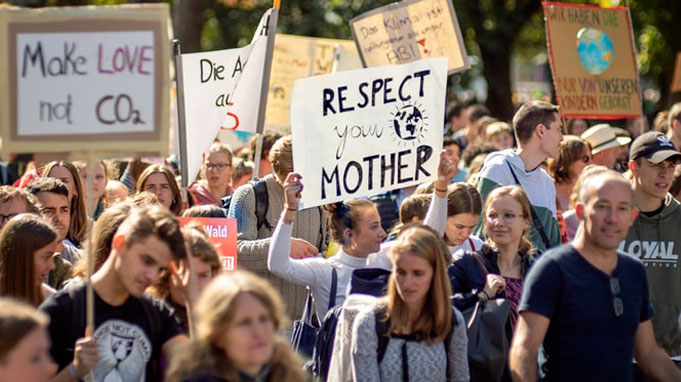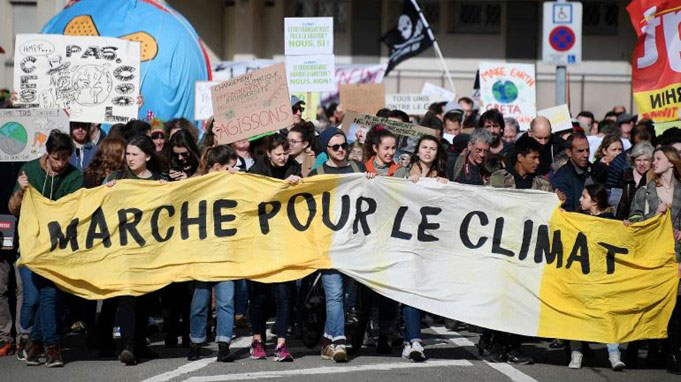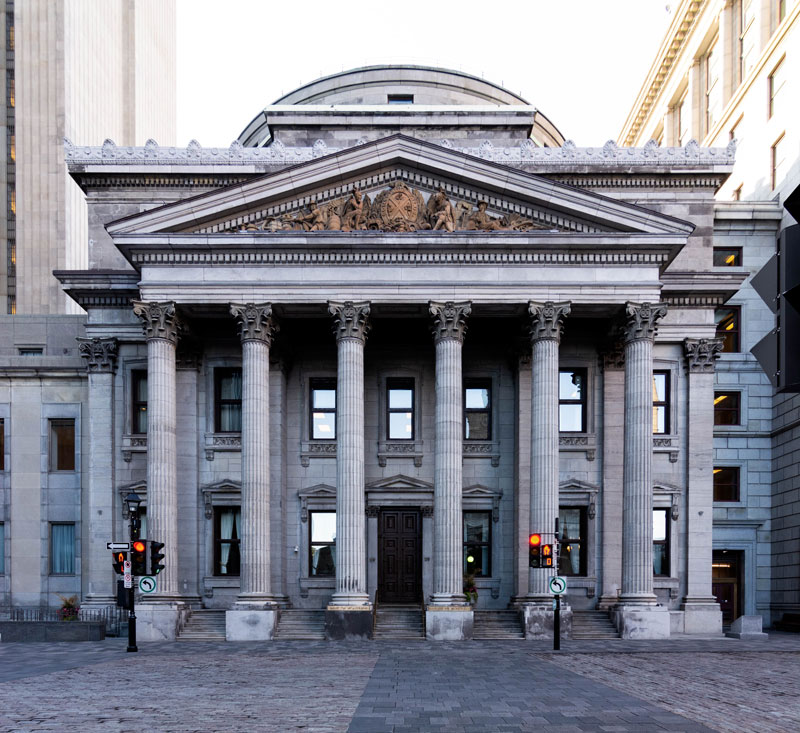Global warming will soon start having disastrous consequences on living organisms, including human beings. Yet society sems incapable of putting a stop to everything that’s causing this rise in temperatures through greenhouse gas emissions. So how can we take action, individually and collectively, to keep the damage to a minimum?
Can we stop global warming?
Unfortunately, the answer is a simple no. In practical terms, even if we stopped emissions totally today, the concentration of CO2 in the atmosphere would decrease very little, and it would take several thousand years at least for this concentration to return to the value recorded in 1850. The lifespan of greenhouse gases is unfortunately very long. Depending on the scenario, around 15-40% of the CO2 emitted will stay in the atmosphere for more than 1,000 years.
Unfortunately, society and the industries related to it, and also our daily lives, are extremely dependent on oil, gas and coal. We can’t stop it all dead, so there is talk of transition. Unfortunately, as long as certain financial interests carry more weight than the interests of living organisms, it will be difficult to avoid plunging future generations into climate chaos.
How can we remedy global warming?
Actions initiated now will have consequences for several thousand years, whatever we do from this point on. That doesn’t mean that it’s not worth doing anything about it. It means that the matter is urgent and that only drastic, forcibly-imposed measures have any hope of slowing the rise in temperatures. Only a comprehensive, global approach will be able to see the world’s ecological ambitions become reality.
There must be effective legislation that compels companies to include global warming in their mandates. There must also be regulation of investments made by corporate investors, as well as a change in the social and societal direction of travel, encompassing goods and service providers and consumers. And most importantly, energy transition that takes account of the need for an energy mix that includes nuclear power. This is the only source of energy that has enough capacity to meet demand and emits no (or very little) CO2. Also in the mix are renewable energies, which also emit very little CO2.
What can nations do to counter global warming?
At the present time, more than 80% of the energy used across in the world is from fossil fuels, and therefore emits CO2. There has been little or no change to this percentage since the year 2000. Worse still, between 2002 and 2012, oil use increased by some 15%, gas use by more than 30% and coal use, the most polluting of all, by 55%!
In spite of the epiphany occurring in the collective conscience, economic and population growth are continuing apace, not least in nations like China, India and south-east Asian countries who have accelerated their development. There should be a switch to degrowth in terms of lifestyles and production… Whereas these countries are not yet out of their “growth” phase. As for developed countries, they too have carried on consuming increasingly, without an eye on the long term. Even more oil for Canada and Australia; even more gas for the USA, Canada, France and Japan; and lots more coal, even, for Poland and Italy. At the same time, to offset sporadic generation from renewable energies, fossil-fuel energies have been favoured, including coal-fired power stations! In this way, a great many countries are going with policies that directly or indirectly support the production/use of fossil fuels, whereas they should be stopped.
Why are countries not really taking action?
Action is being taken, but too little and too slowly. Countries are reluctant to impose drastic measures that are unpopular with citizens and corporations due to the restrictions arising out of them. Such countries seem to spend their time committing to measures aimed at the reduction of greenhouse gas emissions, contained in agreements like the Earth Summit or the Conferences of the Parties: those COP that we hear so much about. Among their attendees, there are also non-state bodies like NGOs, local and regional authorities and scientific organisations.
So what’s the problem? Well, nations do make commitments, but there’s nothing forcing them to follow through on them. Since these agreements are not very binding, if at all, in the legal sense of the term. They don’t set forth any sanctions. It seems like the only thing that can change things is a political mandate, applied by certain countries on those that won’t honour their commitment.
Citizens rallying against global warming
Citizens are now going down the legal route to rally in offensives against nations and force them to take action. This kind of legal action is being taken increasingly all over the world. In France, in response to the Recours Climatique filed in December 2018, by the locality of Grande-Synthe and its former mayor Damien Carême, the Council of State, for the first time ever, ruled on the state’s obligations to yield results in terms of the targets set by the European Union and the 2015 Energy Transition and Green Growth Act, pursuant to the Paris Agreement. Mandates could well materialise at long last! In the same vein, there’s what might be the affair of the century. A case brought by four ecological organisations (Notre affaire à tous, the Fondation Nicolas Hulot pour la Nature et l’Homme (FNH), Greenpeace France and Oxfam France), in an offensive against the French state over its failure to take action on climate issues. In February 2021, the state acknowledged the ecological prejudice and ruled that there had been a breach of the ecological commitments made. History in the making!
What individual actions are effective in combatting global warming?
- Switching banks in favour of an ethically-sound bank which doesn’t finance fossil-fuel energies. Because not many people realise it, but unbeknownst to us our savings can finance fossil-fuel energies. These are among the latest most profitable short-term investments, so bankers are very keen on them. So head for eco-friendly banks like Onlyone, Banque Française Mutualiste, Hélios or Green-Got. They guarantee the ethically-sound, eco-friendly or solidarity-based nature of their investments, and refuse to finance projects related to the exploitation of fossil-fuel energies.
- Buying fewer things and favouring second-hand, local and small-scale producers and artisans
- Reducing air travel and car journeys as much as possible. Favouring trains and, day-to-day, bicycles.
- Drastically reducing intake of meat and mass-produced products
As a great many specialists have been saying for years, global warming is becoming a little more inescapable with every passing day. We already know that even 20 years from now, life on Earth will not be the same. While governments are struggling to slow down the pace, sucked as they are into the economic maelstrom of globalised consumer societies, citizens can change the way they behave as consumers in favour of a frugal degrowth lifestyle. And if possible, one that’s “decarbonised”, i.e. not dependent on fossil-fuel energies. This is a lifestyle that our children will one day have to embrace, in any case, which means doing an immediate 180 when it comes to our habits.













